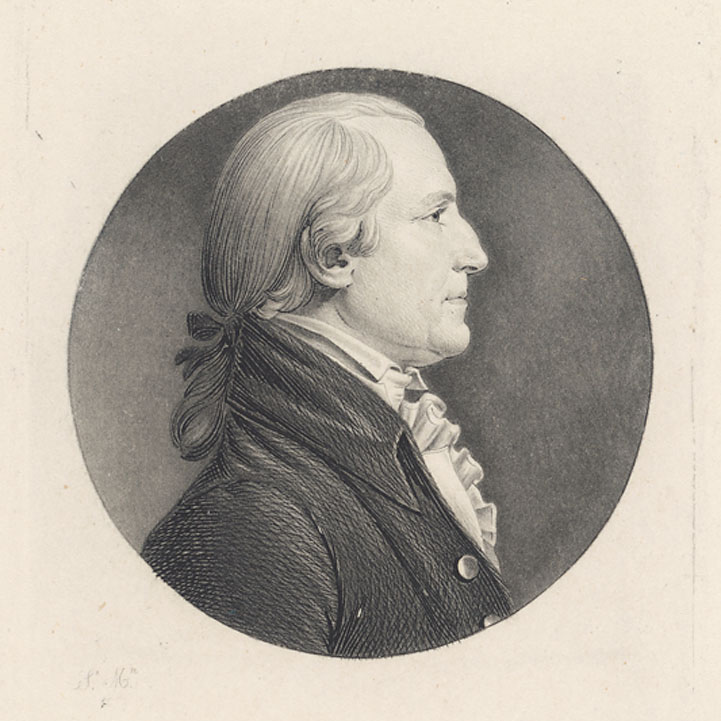In Pittsburgh, Meriwether Lewis is building the barge prior to departing down the Ohio River.
In Williamsburg, Virginia on this day, St. George Tucker, judge of the General Court of Virginia, writes Reflections on the cession of Louisiana to the United States supporting the Louisiana Treaty and Conventions.
St. George Tucker (1752–1827)
Charles B. J. F. de Saint Mémin (1770–1852
Physiognotrace engraving. WikiCommons
In his life, Tucker served as Rector of the College of William & Mary, Virginia State judge, Federal judge, and Justice of the Virginia Supreme Court. He published several works in favor of the Democratic Republican Party under the pseudonym “Columbus” and in 1796 he published A Dissertation on Slavery: With a Proposal for the Gradual Abolition of it, in the State of Virginia.
Nine Benefits
The first, and most obvious advantage which accrues from this transaction, is the happy removal of the recent and imminent danger we were in, of an immediate rupture with France.
Secondly; we have not only averted the impending danger of an immediate war with France, but we have obtained a perpetual guarantee against similar danger from the same quarter in the future . . . .
Thirdly; we have secured, without the possibility of future annoyance or interruption the free navigation of the river Mississippi . . . .
Fourthly; by this cession we have obtained for the western states and their commerce, a strong and, in effect, an impassable barrier against invasion, or annoyance from the west, or south . . . .
[Fifthly] is the . . . benefit which we may hope will be secured to the United States by the acquisition of Louisiana; which is, the preservation of the Union, among the present states, for a period far beyond that, which it would probably have lasted if Louisiana had been retained an settled by France.
Sixthly, in having effectually secured ourselves against future rivalship in the sale of our lands on this side the Mississippi. Our western lands now command two dollars per acre, at the lowest.
Seventhly; . . . It secures us against the danger of depopulation, by migrations from these states to Louisiana; and furnishes us with the means of regulating or own population.
Eighthly, then; this immense territory may be regarded as a treasure in the bank . . . .
Ninthly; we now shall have it in our power to propose to the Indian nations now settled within the United States an exchange of lands beyond the Mississippi, for those which they now hold . . . .
August 10, 1803[1]St. George Tucker, Reflections on the cession of Louisiana to the United States by Sylvestris (Washington: Samuel Harrison Smith, 1803), 10–24.
Experience the Lewis and Clark Trail
The Lewis and Clark Trail Experience—our sister site at lewisandclark.travel—connects the world to people and places on the Lewis and Clark Trail.
Plan a trip related to August 10, 1803:

Notes
| ↑1 | St. George Tucker, Reflections on the cession of Louisiana to the United States by Sylvestris (Washington: Samuel Harrison Smith, 1803), 10–24. |
|---|

